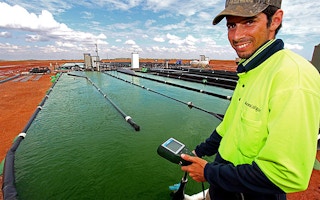Australia could become a major oil exporter like the Middle East if it starts farming native algae, researchers say.
University of Queensland (UQ) experts say Aussie algae species hold great promise in the race for cheap, efficient biofuels that can compete with fossil fuels.
UQ’s Dr Evan Stephens says microscopic algae from Australia’s fresh and saltwater environments have proven to be hardy and fast-growing.
The most promising are now being trialled at a pilot processing plant in Brisbane.
“If we devoted just one per cent of our land mass to algae farming, we could theoretically produce five times more oil than we currently consume,” he said.
“We could potentially become an oil exporter, rather than an importer. We could be like the Middle East.”
He said previous research had focused on oil-rich algae, but those species had their shortcomings.
“Usually these are not fast-growing and they are tastier to predators - like microscopic scoops of ice-cream,” Dr Stephens said.
He said new technologies meant researchers could now look at a broader range of algae, including Aussie species that grow well, and are resistant to predators and temperature changes.
Dr Stephens said algae fuels were some way off being commercially viable, but identifying the best species was a critical step.
“We know we can produce algae oil that is even higher quality than standard petroleum sources,” he said.
The challenge now is to develop efficient production processes.










